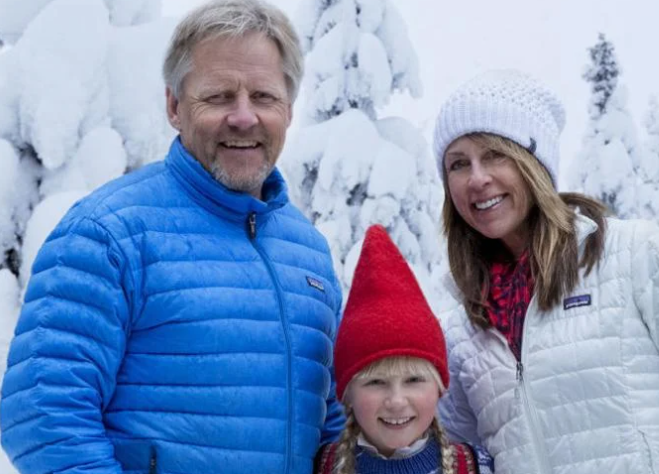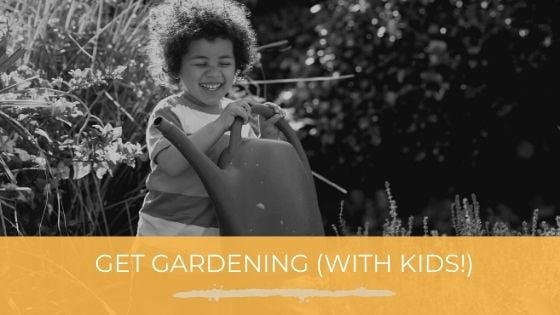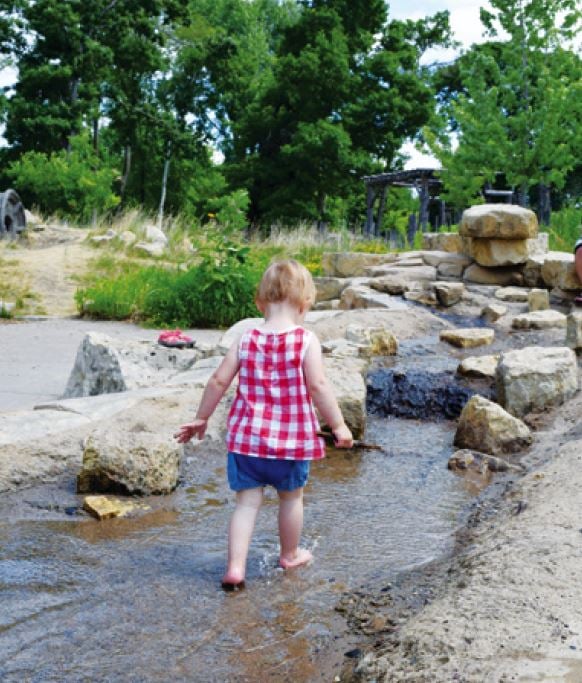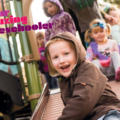An oft-expressed regret of adults is the missed opportunity to learn a second language in those precious and fleeting years when language acquisition is a joyful task of exploration and acceptance for young minds, not the daunting undertaking many older language-learners encounter. Beyond the practical benefits for living and working in a hyper-connected world, being bilingual is linked to improved performance in cognitive tasks, and to retaining mental agility in later life. With these benefits, proven in study and after study, it is no wonder parents are opting to give their children an upper hand by providing an immersion-based educational environment, like the one offered at Joyce Preschool in Minneapolis.
Immersive learning (Aprendizaje inmersivo)
Beyond its regular school-year calendar, Joyce offers Spanish immersion camps during the summer months, where native Spanish-speakers lead children through activities such as outside play, songs, and small group activities focused on giving a cultural context to the language they are learning.
“Our summer camp program is usually focused around having things of different Latin American countries and Spain and focusing on introducing the kids to the culture of those countries,” says Sarah Clyne, the executive director of the preschool.
The camps host between 15 to 20 children, ages three to eight, each week. With teachers from a range of Latin American countries and with experience in early childhood learning, as well as assistants from a local high school, the campers are welcomed to explore the language through play, song, and dance. While some campers may already have a basis in Spanish, either through their own immersion-based education or from speaking with their parents, children with little to no experience in the language thrive just as well.
“Kids are very open to observing language, and catch on very quickly. We use a lot of strategies, like repetition, visual support, singing songs, and having really solid teams so the kids know what to expect. Those are all ways that we make this a safe environment for children to play with language and also to comprehend what’s being said to them,” says Clyne.
The environment for the camp is truly one of play and exploration, a stark contrast to the rigid or formal lessons many students in higher grades may experience when learning a language. A gentle but firm “¡Cuidado!” (Careful!) from camp counselor Carmen Paucar prefaces the arc of a toy as it sails across the room, which is brimming with small voices and hands exploring books, toys, and ideas. The children are excited for the end-of-camp Friday Fiesta, where parents and family are invited to join them for a pizza lunch, and get a first-hand look at their child’s experience.
Community space (Espacio de la comunidad)
During the 2013 summer camp season, Joyce Preschool was finalizing its move from an Uptown, Minneapolis location to the new, nearby building where its main offices and classrooms will be located. Sarah Clyne noted, “It is really nice to be in a space that is reflective of the quality of the program.” Though there were various unpacked boxes in a few rooms, and the general energy of a large move lingered, the hallways of the new space were filled with songs and voices of children, creating a warm and inviting community space, very much the goal Joyce Preschool strives for.
“It’s about family, it’s about community, [and] it’s about creating and building those relationships. It’s more than just a preschool,” remarked Clyne. Indeed, the tagline for the institution, “Muchas culturas, one community,” only further her statement.
It should be noted that navigating the institution as a non-Spanish speaking parent would not be a problem, as almost all staff is bi-lingual.
Teaching to learn (Enseñar a aprender)
Those families that are involved in either the camps or the preschool are diverse, some native Spanish speakers, some bilingual, and many with no second language experience themselves. It is again the drive to give children the opportunity to acquire unique skills early on that has brought them all here. Often times, the children strengthen their own skills by teaching their parents or other students what they’ve gained during the camp.
Pat and Jill MacKenzie, parents of five-year-old Sophia, said they have friends who have sent their children to Spanish-immersion preschools, and they thought the summer camp offered a unique opportunity for their child to try it out for a short while and see if it piqued her interest. “She enjoys coming here, everyday she wants to come here,” said Pat. “She sings us the songs in Spanish at home that she’s learning everyday.” Pat mentioned he had experience with Spanish as part of a job many years back, and through his child’s involvement in the camp has worked on re-strengthening some of those skills. His experience mirrors that of many other parents.
Michelle Peterson, parent of camper Harley, spoke of her past experience with Spanish in high school and college, as well as in a study abroad program. “I think it’s important to learn multiple languages, and we can’t expect that everyone is going to speak English.”
The children’s excitement to show their parents all they’d experienced in the week was evident, as first-year camper Ida ran to her mother Kelly Rikansrud and exclaimed, “I learned a song!” Ida was attending the camp with her older sister, Nora, who had attended the camp the previous year. As Kelly took a seat, Ida sung portions of the songs they had learned, and told her mother what different words meant.
It’s no secret that teaching a subject strengthens those skills in the teacher, and as the children educated their parents, it became clear that the learning taking place extends beyond the few hours a day the campers spend at Joyce.
A universal word (Una palabra universal)
As the camp wound to an end, after songs and dance and conversations among the adults, there was a moment of quiet in an otherwise boisterous morning as lunch was eaten. “¿Quieres pizza?” asked one counselor of a parent, who responded with an admittedly tentative ‘gracias’ when accepting the slice. These many families, some native Spanish-speakers and many hearing it for the first time, were joined together briefly in a safe and welcoming space around the ideals of education, intercultural acceptance, community, and the ever-universal pizza.
Learn More
These week-long day camps give kids ages three to eight a chance to explore Spanish language and Latin American culture with native Spanish-speakers through songs, dancing, crafts, and outdoor play. No language experience is necessary, and the counselors work to accommodate every level of skill. Even fluent Spanish-speakers are encouraged to join. Enrollment is first-come, first-served and opens in spring of each year.
Joyce Preschool // 3400 Park Ave. S. // Minneapolis
612-823-2447

















